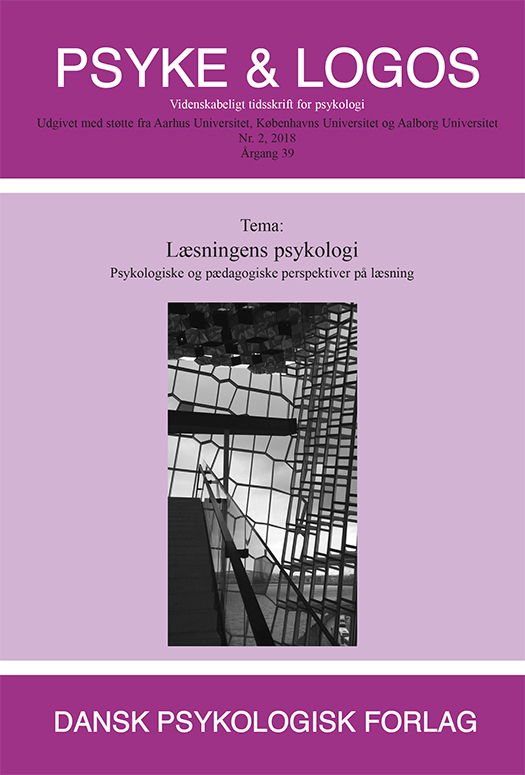Language comprehension and cognitive processing in children with a hearing impairment
DOI:
https://doi.org/10.7146/pl.v39i2.112420Keywords:
Hørenedsættelse, sprogforståelse, børn, kognitiv processeringAbstract
This study explores sustained attention, selective attention, verbal working memory, visual working memory and language comprehension in Danish children with a hearing impairment, children with specific language impairment and normally developed children aged 7 to 12. The main aim is to explore if children with a hearing impairment are late in their language comprehension development and language comprehension development, attention and working memory compared to children with specific language impairment and normally developed children. It is a cross-sectional study and includes 16 children with a slight-to-severe hearing impairment, 11 children with specific language disorder and 25 normally developed children. The overall findings show that, in general, the group of children with a hearing impairment score lower on language comprehension, attention and working memory compared to the group of normally developed children, whereas they score higher compared to the group of children with a specific language disorder.
Downloads
Published
How to Cite
Issue
Section
License
Ophavsret er tidsskriftets og forfatternes. Det er gældende praksis, at artikler publiceret i Psyke & Logos, som efterfølgende oversættes til andet sprog, af forfatteren frit kan publiceres i internationale tidsskrifter, dog således at det ved reference fremgår, at den oversatte artikel har et forlæg i en dansksproget version i Psyke & Logos. Artikler kan frit deles og linkes til på forsknings- og undervisningsnetværk (så som Blackboard). Link foretrækkes, fordi det giver oplysning om brug af tidsskriftets artikler.




